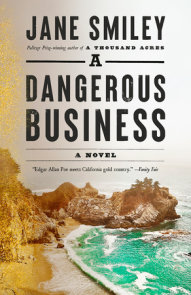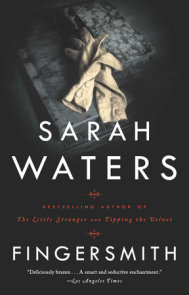READERS GUIDE
“A deft, ironic, beautiful novel that deserves to be a classic.”—William Styron
The introduction, questions, and suggestions for further reading that follow are designed to enhance your group’s discussion of Richard Yates’s acclaimed 1961 novel, Revolutionary Road.
Introduction
Nearly fifty years have passed since Richard Yates published Revolutionary Road, a morally probing and brilliantly crafted novel that remains as unsettling today as when it first appeared. Set largely in the pleasant confines of suburban Connecticut and the office-drone world of Midtown Manhattan, Revolutionary Road is about many things: adultery, abortion, a failed marriage, and the emptiness of suburban consumer culture as the fulfillment of the American Dream. Frank and April Wheeler live on Revolutionary Road, in the Revolutionary Hill Estates, which Frank derisively describes as a whole bunch of cute little winding roads and cute little houses painted white and pink and baby blue [p. 65], where life’s harsher realities are carefully kept at bay. A more unrevolutionary place would be difficult to imagine: America’s grand experiment ended in a cul-de-sac of self-satisfied conformity. But Revolutionary Road is above all about the disastrous consequences of self-deception. Told primarily from Frank’s point of view, the novel explores the ironic distance between how Frank imagines himself and how he really is. As a young boy, Frank dreamed of hopping freight trains and living out a romantic fantasy of a hobo’s life. When he invites a friend to join him, his plan is met with ridicule. This tendency towards picturing himself in a heroic light—he practices lighting a cigarette in a way designed to create a dramatic, seductive effect—is thoroughly at odds with his reality. As an adult, he dreams of finding himself, and rents an apartment in New York’s bohemian Greenwich Village to do so. After several aimless years, instead of himself he finds April Johnson, a beautiful young woman from a glamorous but emotionally distant family. And soon thereafter he finds himself with children and a wife to support, working in the same firm, Knox Business Machines, that his father worked for. Nevertheless, Frank considers himself above it all and has only disdain for where he lives, where he works, and the people who surround him. If only he and April could get out of phony America, then he’d find himself. But when April presents a concrete plan to live in Paris, Frank is instantly terrified. April herself is hardly blameless for the discord in their marriage. Her willfulness and selfishness are on full display throughout much of the novel, and at times her narcissism rivals that of her husband. Indeed, nearly all of the characters in the novel are engaged in some degree of self-deception or denial. The relentlessly cheerful Mrs. Givings and her doddering husband are exemplary in this respect. It is only their son, John, whom they have confined to a mental hospital, who dares to say what he really thinks of others and of himself. That the only honest character in the novel has been deemed insane is a measure of just how disillusioned a work Revolutionary Road is. It offers no solace, no comforting vision of a way out of the deadening world that Frank and April inhabit. What it does, instead, is to reveal with a lacerating clarity just how destructive self-deception can be. That clarity, painful as it is, can be seen as a necessary corrective to an age which Yates saw as fundamentally dishonest. Yates’s mastery of emotional nuance, of the way the body betrays what the mind wishes to conceal, his ability to be both merciless and compassionate towards his characters, as well as the remarkable grace and force of his prose, lifts this bleak story to the stature of a masterpiece. And the reissue of Revolutionary Road gives a new generation of readers a chance to measure themselves in the mirror Yates has held up to the American dream.Questions and Topics for Discussion
1. What is the significance of the novel’s title, Revolutionary Road? In what ways might it be read as an ironic commentary on mid-twentieth century American values?
2. Why does Yates begin the novel with the story of the play? In what ways does it set up some of the themes—disillusionment, self-deception, play-acting, etc.—that are developed throughout the novel?
3. Frank rails about the middle-class complacency of his neighbors in the Revolutionary Hill Estates. “It’s as if everybody’d made this tacit agreement to live in a state of total self-deception. The hell with reality! Let’s have a whole bunch of cute little winding roads and cute little houses painted white and pink and baby blue; let’s all be good consumers and have a lot of Togetherness and bring our children up in a bath of sentimentality . . . and if old reality ever does pop out and say Boo we’ll all get busy and pretend it never happened” [pp. 68-69]. Is Frank’s critique of suburbia accurate? In what ways does Frank himself live in a state of self-deception? Why can he see so clearly the self-deception of others but not his own?
4. What ironies are involved in Frank going to work for the same firm his father worked for? What is Frank’s attitude toward his job and the fact that he’s walking in his father’s footsteps?
5. Describing a Negro couple holding hands at the mental hospital where John Givings has been confined, the narrator writes that “it wasn’t easy to identify the man as a patient until you noticed that his other hand was holding the chromium leg of the table in a yellow-knuckled grip of desperation, as if it were the rail of a heaving ship” [p. 296]. What do such precise and vivid physical descriptions—often highly metaphorical—add to the texture of the novel? Where else does Yates use such descriptions to reveal a character’s emotional state?
6. Revolutionary Road frequently—and seamlessly—moves between past and present, as characters drift in and out of reveries. (April’s childhood memory [pp. 321-326] is a good example). What narrative purpose do these reveries serve? How do they deepen the reader’s understanding of the inner lives of the main characters?
7. What roles do Frank’s affair with Maureen and April’s sexual encounter with Shep play in the outcome of the novel? Are they equivalent? What different motivations draw Frank and April to commit adultery?
8. Twice Frank talks April out of an abortion, and both times he later regrets having done so, admitting that he didn’t want the children any more than she did. What motivates him to argue so passionately against April aborting her pregnancies? What methods does he use to persuade her? Is John Givings right in suggesting that it’s the only way he can prove his manhood?
9. What role does John Givings play in the novel? Why is he such an important character, even though he appears in only two scenes? How does he move the action along?
10. How do Frank and April feel about Shep and Milly Campbell? What do they reveal about themselves in their attitudes toward their closest friends?
11. Before she gives herself a miscarriage, April leaves a note telling Frank not to blame himself if anything should happen to her. But is he to blame for April’s death? Why, and to what extent, might he be responsible?
12. The narrator writes, after April’s death, that “The Revolutionary Hill Estates had not been designed to accommodate a tragedy” [p. 339]. In what ways is the novel tragic? What tragic flaws might be ascribed to both Frank and April? Why are the Revolutionary Hill Estates ill-suited to tragedy?
13. What is Yates suggesting by the fact that the only character in the novel who sees and speaks the truth has been confined to an insane asylum? Does John Givings’s‚ outsider status give him the freedom to speak the truth, or has his natural tendency toward telling the truth, however unpleasant it might be, landed him in a mental hospital?
14. Near the end of the novel, the narrator says of Nancy Brace, as she listens to Milly’s retelling of April’s death: “She liked her stories neat, with points, and she clearly felt there were too many loose ends in this one” [p. 345]. What is the problem with wanting stories to be “neat”? In what ways does Revolutionary Road circumvent this kind of overly tidy or moralistic reading? Does the novel itself present too many “loose ends”?
15. The novel ends with Mrs. Givings chattering on to her husband about how “irresponsible” and “unwholesome” the Wheelers were. What is the significance, for the novel as a whole, of the final sentences: “But from there on Howard Givings heard only a welcome, thunderous sea of silence. He had turned off his hearing aid”? [p. 355]. What symbolic value might be assigned to the plant that Mrs. Givings mentions at the end of the novel?
16. Revolutionary Road was first published in 1961. In what ways does it reflect the social and psychological realities of that period? In what ways does it anticipate and illuminate our own time?





















